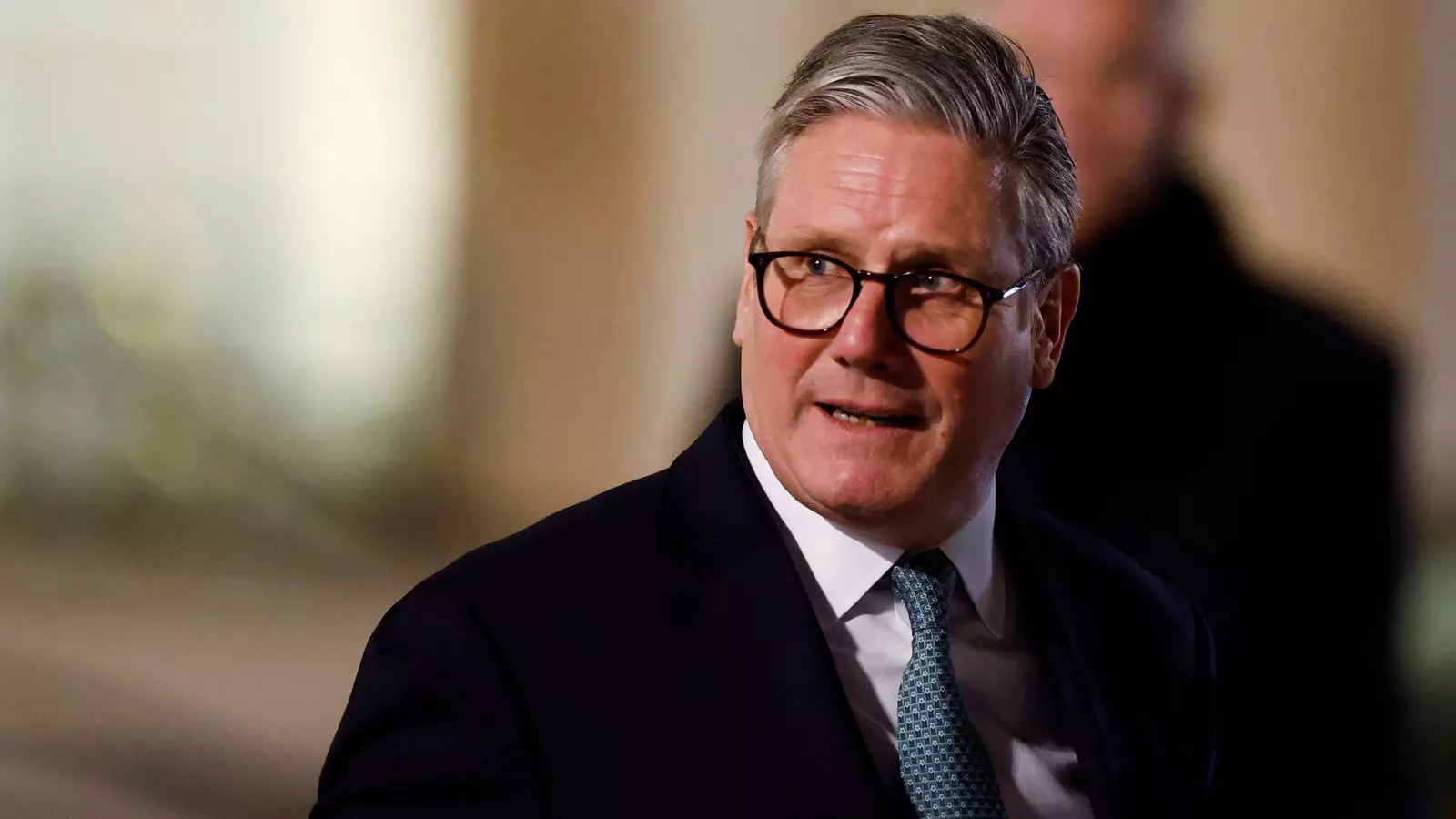In recent discussions surrounding the ongoing war in Ukraine, Sir Keir Starmer has taken a bold stance, urging former President Donald Trump to reaffirm his commitment to supporting Ukraine through solid security guarantees. This plea comes in light of alarming comments made by Trump, who labeled Ukrainian President Volodymyr Zelenskyy a “dictator” and accused political leaders like Starmer and French President Emmanuel Macron of failing to contribute to the resolution of the ongoing conflict. With Trump’s upcoming meeting with the prime minister in Washington, the dynamics of transatlantic relations hang in the balance.
Starmer’s insistence on the necessity of including Ukraine in any discussions regarding its future underscores a vital principle: peace agreements that disregard the voice of the primary affected party risk marginalizing their sovereignty and security. When strong nations, especially those as powerful as the United States, engage in discourse about a smaller nation’s future without including its representatives, it sets a dangerous precedent, reinforcing the notion that larger powers can dictate terms without accountability.
The idea of establishing a so-called “good peace,” as Starmer articulated, hinges on exhibiting strength, not just in military terms but also through steadfast international support. It is crucial to recognize that any peace settlements which do not conclusively halt further Russian aggression may lead to more profound crises in the future. Starmer has emphasized that a robust security framework, possibly including air defense systems and NATO support in the event of attacks, is essential if a lasting peace is to be achieved, particularly in light of the persistent threat posed by Russia.
This discourse comes as the backdrop of ongoing negotiations between U.S. and Russian delegates in Saudi Arabia, which have notably excluded Ukrainian representatives. Such omissions are particularly troubling, as they highlight a disconcerting trend of sidelining Ukraine in discussions about its sovereignty and future. Defense Secretary John Healey’s declaration that “any negotiations about Ukraine cannot happen without Ukraine” resonates with the urgency to reevaluate how peace negotiations are conducted and the importance of full representation.
In a time of heightened security concerns, Starmer has echoed calls for increased defense spending within the UK, advocating for a boost from 2.3% to 2.5% of GDP. As Europe grapples with its defense capabilities in light of Russian expansionism, solidarity among European nations becomes imperative. Starmer’s visit to the U.S. is expected to serve as a platform not only for reinforcing commitments to Ukraine but also for addressing these domestic defense spending concerns.
Moreover, Starmer’s openness to deploying British troops in a European force post-peace agreement introduces another layer of complexity. While reassuring allies of the UK’s commitment to regional stability, such proposals also necessitate a thorough discussion of the implications for British defense policy and the potential risks involved.
Amid these political dynamics, the UK government, represented by Foreign Secretary David Lammy, is set to unveil new sanctions against Russia, coinciding with the third anniversary of the full-scale invasion of Ukraine. This move reflects an ongoing effort to “turn the screws” on Moscow and hold the aggressor accountable for its actions. The importance of these sanctions lies in their ability to apply pressure on the Kremlin and deter future aggressions.
With the challenge of restoring peace in Ukraine compounded by external factors and geopolitical tensions, it is vital for leaders like Starmer to maintain a unified front. The collaborative efforts of Western nations to support Ukraine not only reaffirm their international standing but also demonstrate an unwavering commitment to democratic principles.
As the geopolitical landscape evolves, the importance of strong alliances and proactive measures cannot be overstated. The historical significance of supporting Ukraine must be acknowledged, with leaders taking decisive steps to ensure a durable peace. Acknowledging the complexities of modern warfare and diplomacy is essential for achieving sustainable solutions in the aftermath of conflict. Sir Keir Starmer’s emphatic calls for support and increased defense spending underscore the urgency of defending democratic values and safeguarding Europe’s security as it navigates these unprecedented challenges.

Leave a Reply